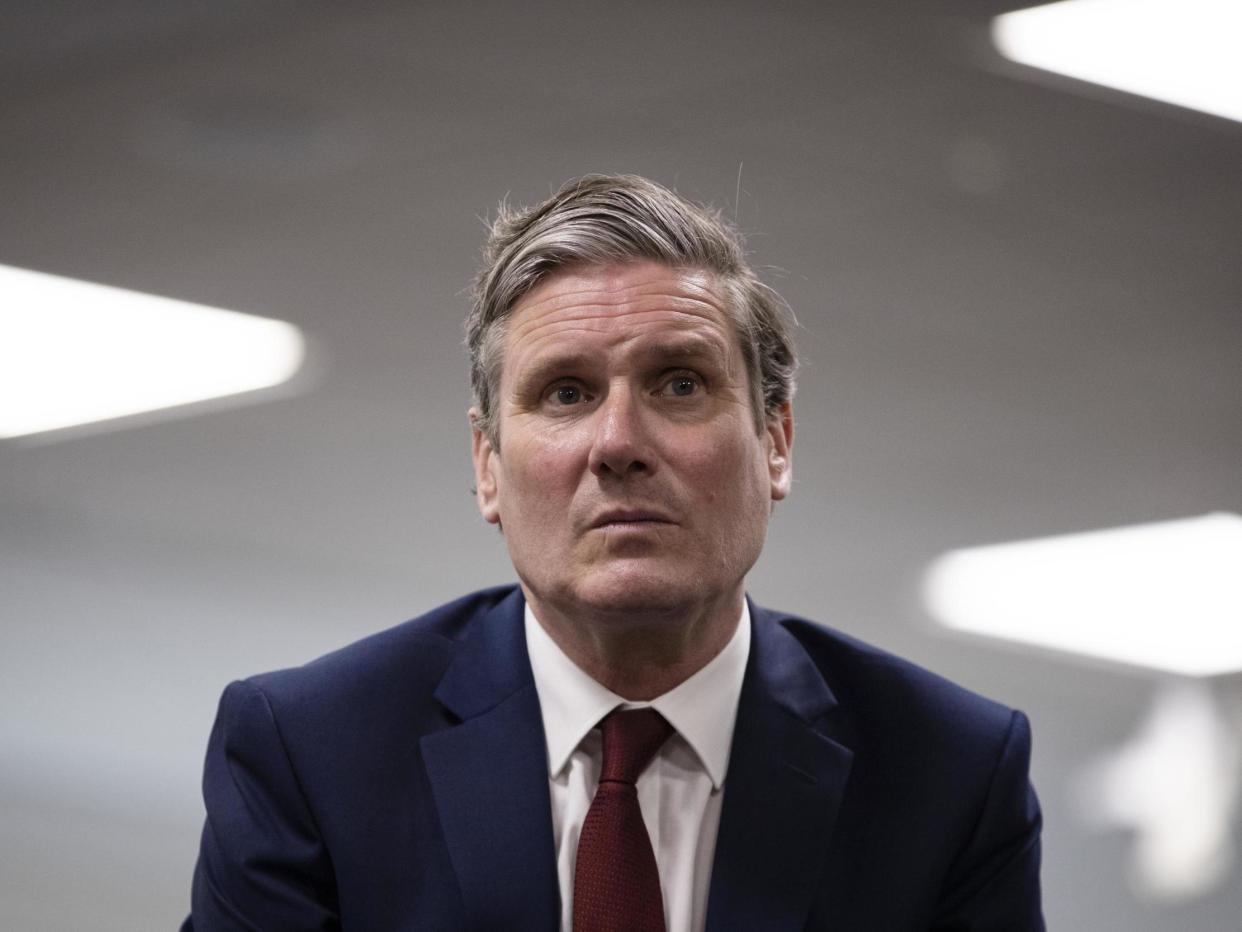Rishi Sunak has 24 hours to backtrack on furlough scheme rollback and avoid unemployment spike, Labour warns

The chancellor, Rishi Sunak, has 24 hours to change course on the rollback of his furlough scheme or face a massive spike in unemployment, Labour has warned.
The shadow chancellor, Anneliese Dodds, called for targeted support for sectors of the economy still unable to return to business as usual, warning of a “python-like squeeze on jobs” if help is withdrawn prematurely.
Speaking to The Independent ahead of the launch of Labour’s “jobs, jobs, jobs” campaign with the party’s leader, Sir Keir Starmer, in Peterborough, Ms Dodds declined to put a figure on the number of jobs at risk, but pointed to a recent estimate by economic think tank Niesr that the end of the furlough scheme could see 10 per cent unemployment by Christmas.
Under Mr Sunak’s gradual scaling back of the job retention scheme, employers will be required from Saturday to pay national insurance and pension contributions for the hours an employee is on furlough.
The move will be followed by a cut in state support for furloughed jobs – from the current 80 per cent of wages up to £2,500 a month, to 70 per cent in September, and 60 per cent in October, with employers required to make up the difference – before the scheme is wound up altogether in November.
Ms Dodds said that the one-size-fits-all withdrawal of subsidies was a “historic mistake” that would hand P45 notices to workers across the country.
Labour wants support targeted at employers who are prevented by social distancing guidelines from operating at normal capacity, many of which are in the hospitality, cultural and transport sectors.
Sir Keir signed the party up to a five-point pledge promising:
Reform of the furlough scheme to target aid at struggling industries;
A £1.7 billion fightback fund to prevent firms going under and support high streets;
Additional support for areas in local lockdowns, the self-employed and those left out of existing schemes;
Protection for workers’ rights, increased sick pay, safe workplaces, and providing health and care services with the resources they need to avoid a second wave;
Investment in infrastructure to create jobs.
The party released analysis suggesting that 43 per cent of businesses in the hardest-hit sectors are still reporting being temporarily closed, while footfall for key high street businesses is still down 40 per cent on pre-pandemic levels.
Ms Dodds said: “We don’t think the furlough scheme should continue precisely as it is in perpetuity. That wouldn’t be sensible. But we really do need to learn from other countries which have continued to support wages in particularly strongly impacted areas.
“We think there needs to be a targeted system of wage support in those sectors that are still struggling. Unless we do that, we are going to see big waves of unemployment coming through.”
She pointed to countries like France, where support has been guaranteed for up to two years, and Germany, where a “Kurzarbeit” (short-time working) scheme has been in place since the financial crash of 2008.
And she told The Independent that money spent on keeping workers in jobs and maintaining their links with employers now will pay dividends in terms of preventing future expense.
“We know already from research that somebody who’s been unemployed when they’re young, they’re likely to be earning, even 20 years down the line, a fifth less than somebody who hasn’t experienced a period of unemployment,” said Ms Dodds.
“And of course that’s not cost-free. There’s a cost in social security and a cost in long-term earnings generating tax revenues and a cost for those communities that could be particularly badly affected.”
With employers currently reporting huge numbers of applicants for the few jobs available, Ms Dodds warned that people made redundant as they come off furlough may have a long wait before they get back into work.

“We have very low levels of new vacancies coming on to the market compared to other countries,” she said. “The government’s view may be that even if we have spikes in unemployment which may be very large, they will just be soaked up again with new vacancies. That is not what the evidence indicates.”
Dodds accused the government of having “failed to match up to the scale of the crisis” and was scathing about Mr Sunak’s £9bn job retention bonus offering £1,000 for every furloughed worker remaining in their post until January, which she said would impose a massive deadweight cost for employees who were never at risk of redundancy, while saving few jobs.
“The chancellor’s refusal to abandon his one-size-fits-all withdrawal of furlough is a historic mistake that risks a python-like squeeze on jobs in the worst-hit sectors,” said the shadow chancellor. “The reward for months of hard work and sacrifice by the British people cannot be a P45.
“It’s not too late for the chancellor to see sense, change course and support the businesses and sectors that need it most.”
Read more
Women reveal agony of job losses during coronavirus
Selfridges to cut 450 jobs as sales tumble due to pandemic

 Yahoo News
Yahoo News 
